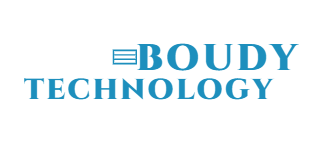Efforts for Metaverse considering security and privacy
The Metaverse is already widely used. Sooner or later, companies will use the Metaverse to engage with their customers and create a competitive advantage. It is also predicted that as consumers gather in the virtual world, hundreds of millions of virtual reality devices will be used worldwide within the next five years.
Situation surrounding the Metaverse
The immersive environment of the Metaverse is already attracting people in amazing new ways. Digital avatars and identities are spreading to activities such as social, shopping, games, fitness, education, work, training and entertainment.
Consumers are spending more time and money on the virtual world, and different brands and products are adapting to this new reality. The Metaverse market is projected to exceed US $ 786 billion by 2024 * 1 , and the World Economic Forum (WEF) is committed to helping define and build an open and comprehensive Metaverse. It also discusses the potential of the Metaverse as world leaders attend the Davos Forum.
In this virtual reality (VR) and augmented reality (AR) world, it is possible to obtain vast amounts of biometric data and detailed behavioral profiles for all users. The possibilities are also expanding, especially through interaction with increasingly sophisticated artificial intelligence and machine learning systems. The proliferation of digital avatars and devices has already created a new level of privacy risk, and the ability to bring about these game changes presents challenges that regulators and businesses should take seriously.
Traditionally, access to online channels has generally been possible with just a username and password. Complex biometrics can be exploited in the Metaverse, making it even easier to extract critical security information through immersive interactions than in real-world social engineering. Personal information theft is a real concern that complicates criminal investigations in both the real and virtual worlds.
Metaverse technology has great potential in terms of user interaction, data retrieval, communication, influence, etc., but there is still a lack of standards to properly protect users. This also reflects the general lack of industry standards that underpin the development of the Metaverse architecture itself.
Need to address the lack of metaverse standards
The major challenges in standardizing the Metaverse arise from differences in their development compared to the Internet. The Internet was born in a relatively open environment, and its standards have evolved over time as it expanded from the origins of academia. The process provided transparency to the standards adopted, such as the multi-stakeholder governance model we see today and the social debate on many aspects of interaction with the Internet.
However, the delay in standardizing the Metaverse makes the process monopolistic, with a relatively closed environment and lack of proper use, risk, and rule scrutiny. These developments raise the question of how enterprises and regulators, as well as the user community, can develop the necessary interconnect and data management standards in an open, open and transparent environment. I'm doing it.
For example, by the time you walk around the virtual cityscape and roam the stores, Metaverse technology may already be able to identify your favorite brands, shopping behaviors, favorite colors, and more. We need to ask ourselves the important question of how to protect our users when it comes to privacy, personal information protection and unethical manipulation of consumer behavior.
Since social engineering is the first step in today's cyberattacks, the Metaverse can be one of the means for attackers to launch social engineering attacks. Many crimes occurring in the real world are also expected to occur with surprising similarities in the Metaverse.
Corporate leadership towards metaverse management
How should we define socially and legally acceptable behavioral standards in the Metaverse-specific environment? This is an urgent issue and represents the need for extensive and expeditious public debate.
Legal regulation on social media has just begun to catch up with the rapid explosion of its channel and capacity. With the proliferation of new features and growing public awareness of the virtual future, the Metaverse is ready to take a leap forward, but the journey to effectively manage the Metaverse has not yet really begun. It is.
A joint regulatory approach can facilitate both public debate and a joint “sandbox-style” initiative between private industry and government to develop appropriate regulatory models. As cyber threats and disturbing attacks become more sophisticated, social dialogue on the use and protection of online consumer data is already heating up. However, with the unprecedented ability to collect and analyze biological user data, these challenges continue to increase.
The Monetization of the Metaverse is yet to come, but the business community should take leadership in the dialogue to manage this novel and unusual space. Developing appropriate guidelines is not only in the public interest, but also in the interests of companies seeking to protect their reputation, enhance their brand and secure their intellectual property.
We believe that wise companies can take the lead in consumer protection while leveraging the metaverse to engage with their customers and ultimately find opportunities to differentiate themselves in the global market. With endless new possibilities in the virtual world, dialogue and informed frameworks to truly protect not only consumers but also corporate brands and intellectual property Encouraging action is essential.


Comments